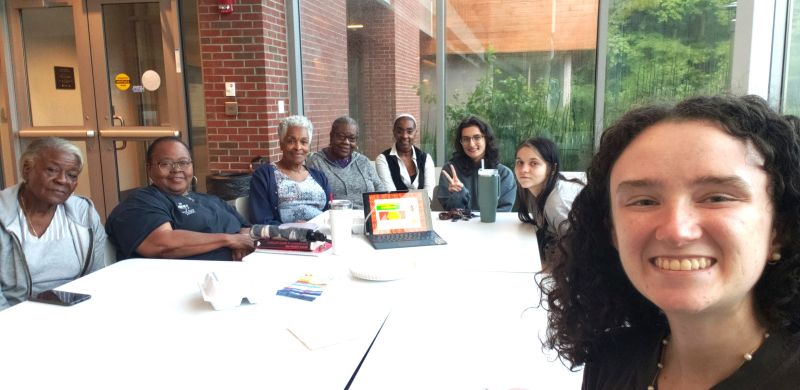Share this Story
Virginia African American Cultural Center Partnership Continues to Grow with Summer Course in Africana Studies
Class includes community members learning alongside VWU students
University News | July 22, 2024
When Linda Carrington was growing up, she received a highly-selective version of American history. Selective, in that a great deal of it was omitted, mostly history related to the struggle of her African American forebears. Now, she’s doing something to fill in those gaps, taking Introduction to Africana Studies (AFRS 111) this summer at Virginia Wesleyan University. “I felt in my heart that I should have known about all this,” says Linda. “The fact that I didn’t was such a shock.” 
Through a growing partnership between Virginia Wesleyan and the Virginia African American Cultural Center (VAACC), she and a group of her friends are learning alongside VWU students and, if they choose, can continue on with additional courses in Africana Studies. “The VAACC mission is to collect, preserve, interpret, inform, and celebrate Virginia's African American History, Culture, and Community and to educate the public about African Americans contributions in all areas of endeavor,” says VAACC Founder and Chairman Dr Ross-Hammond. “Having established itself in the community through strategic partnerships and programming, VAACC is now building an important historical education component crucial to its very foundation by partnering with Virginia Wesleyan University. The community students really enjoyed this immersive learning experience done across generations to share and learn and feel proud about their history in a new light!”
Throughout the summer, these students have been gaining a much deeper understanding of their ancestors throughout the Africana world. “I teach about society and the world they live in and introduce them to information they’ve probably never heard of before,” says Dr. Ophera Davis who is teaching the class and says she concentrates exclusively on the people, facts, and events that are underrepresented in traditional curriculum. “Everyone knows about the Greek and Roman ruins, but history has all but ignored the equally impressive ruins from rich cultures throughout the 54 countries that comprise the African continent.”
Linda’s friend, Jeanette Sumner, is also taking the course, and with a specific purpose in mind. “I have 12 grandchildren. They ask a lot of questions and I couldn’t answer many of them. Faculty members like Dr. Davis are slowly, but surely helping set the historical record straight, one student at a time. “As we become more enlightened, we gain a deeper connection and better understanding of human nature,” says Dr. Davis.
“The history we were taught was never about looking at us as contributors to America and all that we brought,” says Gail Darby, another student in the class. She says that going forward, America needs to give its future generations a more complete version of its history. And much in the same way Jewish people work tirelessly to ensure the atrocities of the holocaust are not forgotten, African Americans must do the same with their history.
For Linda Carrington, this summer has been nothing short of lifechanging. “I’m so glad I did this. It’s made such a difference in my life.”

